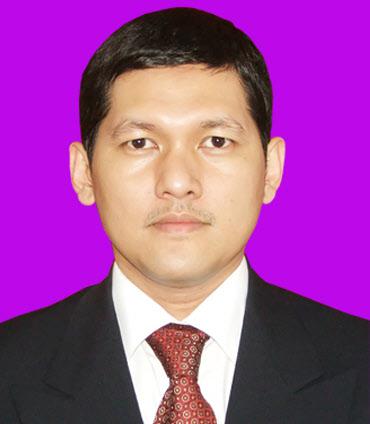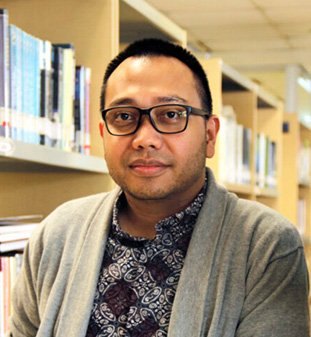Case Document
PALM OIL CONTROVERSY
Palm oil is one of the world’s most produced and consumed oils. This cheap, production-efficient and highly stable oil is used in a wide variety of food, cosmetic and hygiene products, and can be used as a source for biofuel or biodiesel. Most palm oil is produced in Asia, Africa and South America because the trees require warm temperatures, sunshine and plenty of rain in order to maximize production. In Indonesia, PT Perkebunan Nusantara as one of the companies owned by Government who specialized operating the palm oil production was challenged by the controversial cases in Sumatra. The case arises after the land clearing activities for the palm oil plantation that caused haze spread throughout several countries in Southeast Asia.
The land clearing cases in Sumatra island causes multiple adverse impacts to the environment, surrounding society, and to the business, itself. The 2015 Southeast Asian haze was an air pollution crisis affecting several countries in Southeast Asia. It was caused by PTPN from illegal slash-and-burn practices to open new palm oil plantation due to land clearing, principally on the Indonesian islands of Sumatra and Kalimantan, which then spread quickly in the dry season. This case has been the worst disaster not only for Indonesia but also other countries surrounded.
PT UNITED TRACTORS: THE NOT SO-PROMISING FUTURE
A GIANT WHO LOSE THEIR GRIP ON THE MARKET: A CASE OF PT. SARIWANGI
BAKMI GM: LONGEVITY STORY OF A NOODLE RESTAURANT
FILM PIRACY IN INDONESIA: HAVE ACTIONS AND REGULATIONS TAKEN BEEN EFFECTIVE?
ARTOTEL GROUP: THE ART OF STEALING MARKET SHARE
FINTECH IN INDONESIA: DILEMMA OR CONFLICT OF INTEREST
Fintech’s business in Indonesia is growing rapidly nowadays, proven by the existence of many Fintech-based startup companies in the last few years. Fintech startup itself is starting to occupy a large part of the Indonesian startup industries. Fintech helps people to access financial products, facilitate transactions and improve their financial literacy easier. Fintech became highlight in September 2015 when Indonesia’s Fintech Association established. The goal is to set a trusted and reliable partner to build up Indonesia’s Fintech ecosystem. It come up from Indonesia enterprises and for Indonesians. Up to now, there are at least 140 Fintech players in Indonesia, with 55 of them joining the organization as full members.
In 2016, the Indonesia Financial Service Institution (POJK) issued new regulations and policies about fintech on off balance sheet (marketplace) lending and by Central Bank (BI) on Payment Transaction Processing. The growth of Fintech players has been skyrocketing, from only 7% in 2006/2007 to 78% a decade later. The number of the players are recorded around 135-140 companies. 43% of them play in the payment sector, such as mobile payment as well as payment gateway startups from various sectors, ranging from payment startups, lending, financial planning (personal finance), retail investment, crowdfunding, remittances, financial research, and others. Fintech reaches the younger generation who are more familiar with the internet and make use of the internet for all their needs. Fintech can also make things simpler and more efficient. Fintech uses technology, software and big data, it also uses social media data from its users that Fintech uses in conducting risk analysis.
PT. GARUDA INDONESIA: A LESSON ON AN ACCOUNTING SCANDAL AND AUDIT FAILURE?
This case discusses Garuda Indonesia’s 2018 financial report which is deemed to be misstated with respect to its revenue account. Despite this, the auditor issued an unqualified opinion. As a public company and national flag carrier of Indonesia, this case attracted a lot of attention from and was scrutinized by many stakeholders. A financial report should contain certain characteristics to it (usually referred to as qualitative characteristics of financial information), so that users can rely on it to help them make business decisions. Two commissioners of Garuda decided that Garuda’s 2018 report did not satisfy the accounting standards, and hence they refused to sign the report.
After receiving high publicity and conducting a thorough investigation, in June 2019, regulators finally announced that Garuda had manipulated its 2018 report and required Garuda to publish a restated financial report. In addition, Garuda was also required to pay a fine. The regulator also imposed sanctions to the auditor for failing to perform the audit process according to the auditing standards. In a sense, this case is yet another example of an accounting scandal and audit failure. Nevertheless, there is always another side of the story, which is expected to be discussed during the class discussion.
ADAPTION
THE SURVIVAL STRATEGIES IN E-COMMERCE INDUSTRY: A CASE OF TRAVELOKA INDONESIA
As almost all activities can be executed with just a smartphone and internet connection these days, companies should consider to provide online services unless they do not wish to stay in the market any longer. That does not exclude tourism industry which involves airlines, hotels, trains and other types of accommodation and transportation. People, including Indonesian, prefer to sit and relax while planning their trip rather than waiting in a long queue just to book their plane tickets. This gives Traveloka the ability to stay on the top of the as number one solution for all kind of travel needs. Traveloka itself was established as the founder, Ferry Unardi, often had difficulty in plane reservations, especially when he wanted to return to Padang, Indonesia, from the United States. Even though it began as a search engine to compare the price of airline tickets from various other sites, Traveloka succeeded in becoming a ticket reservation website, where users can place an order on its official website. A while later, hotel booking services are also available on the Traveloka website.
Traveloka started on early e-commerce era which made Traveloka encountered several obstacles as other e-commerce companies had to deal with at that time. One of them was to gain customer trust. People were not feeling comfortable about giving their money without seeing the products with their own eyes yet. Especially in Traveloka case, where people actually had to hand a big sum of money for it is a plane or hotel reservation. But Traveloka has proved themselves as trustworthy to the market with their security guarantees such as a secure payment gateway (Exhibit 1) and customers’ personal data protection. Traveloka also managed to expand its business in Southeast Asia, namely Thailand, Malaysia, Singapore, Vietnam, and the Philippines. However as time passes by, customer trust is no longer the only obstacle they have to face in this e-commerce industry.












